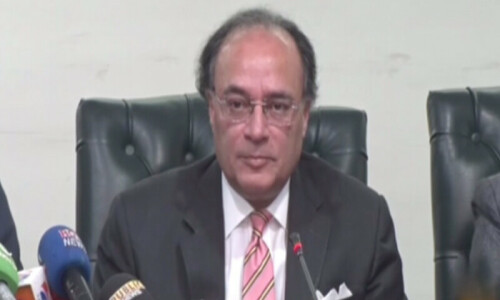WASHINGTON: Both Democratic presidential candidates — Hillary Clinton and Bernie Sanders — would keep US troops in Afghanistan well into the future if they were elected.
In a marathon television debate on Thursday night, the two leaders also pledged not to send US combat troops into Iraq and Syria.
“You can’t simply withdraw tomorrow. I wish we could, but it would allow the Taliban or someone else to reclaim that country,” said Mr Sanders, a senator from Vermont.
“I would have to make an evaluation based on the circumstances at the time I took office as to how much help [Afghan forces] continue to need,” said Mrs Clinton, a former secretary of state.
“We’ve got this arc of instability from North Africa to South Asia, and we have to pay close attention to it”.
Their position reflects a growing consensus in the United States that Washington should think about a long-term military presence in Afghanistan. At a recent congressional hearing, both Republican and Democratic lawmakers suggested negotiating a similar arrangement with Afghanistan that the US has with Germany and South Korea.
In both countries, the United States has kept troops for more than half a century.
Both candidates refused to offer a timeline for full withdrawal of US troops from Afghanistan.
Last fall, President Barack Obama backed away from plans to withdraw all combat troops by early 2017 and instead approved a plan that would allow the next president whether to keep or call back the troops.
Mrs Clinton also pledged to increase airstrikes and US Special Forces missions in Iraq and Syria but she said that large deployments of combat troops there were “off the table”.
Instead, she suggested strengthening armed forces of US allies in the region and encouraging them to fight the militant Islamic State (IS) group.
“Given the threat that ISIS poses to the region and beyond, as we have sadly seen in our own country, it is important to keep the Iraqi army on a path where they can actually take back territory,” she said. “Work with the Sunni tribes in Anbar province and elsewhere so that … they’re doing the fighting. We’re doing the support and enabling”.
Senator Sanders emphasised the need for better intelligence in the region and warned against all escalation of force overseas. “We must not get involved in perpetual warfare in the Middle East,” he said.
Published in Dawn, February 6th, 2016











































